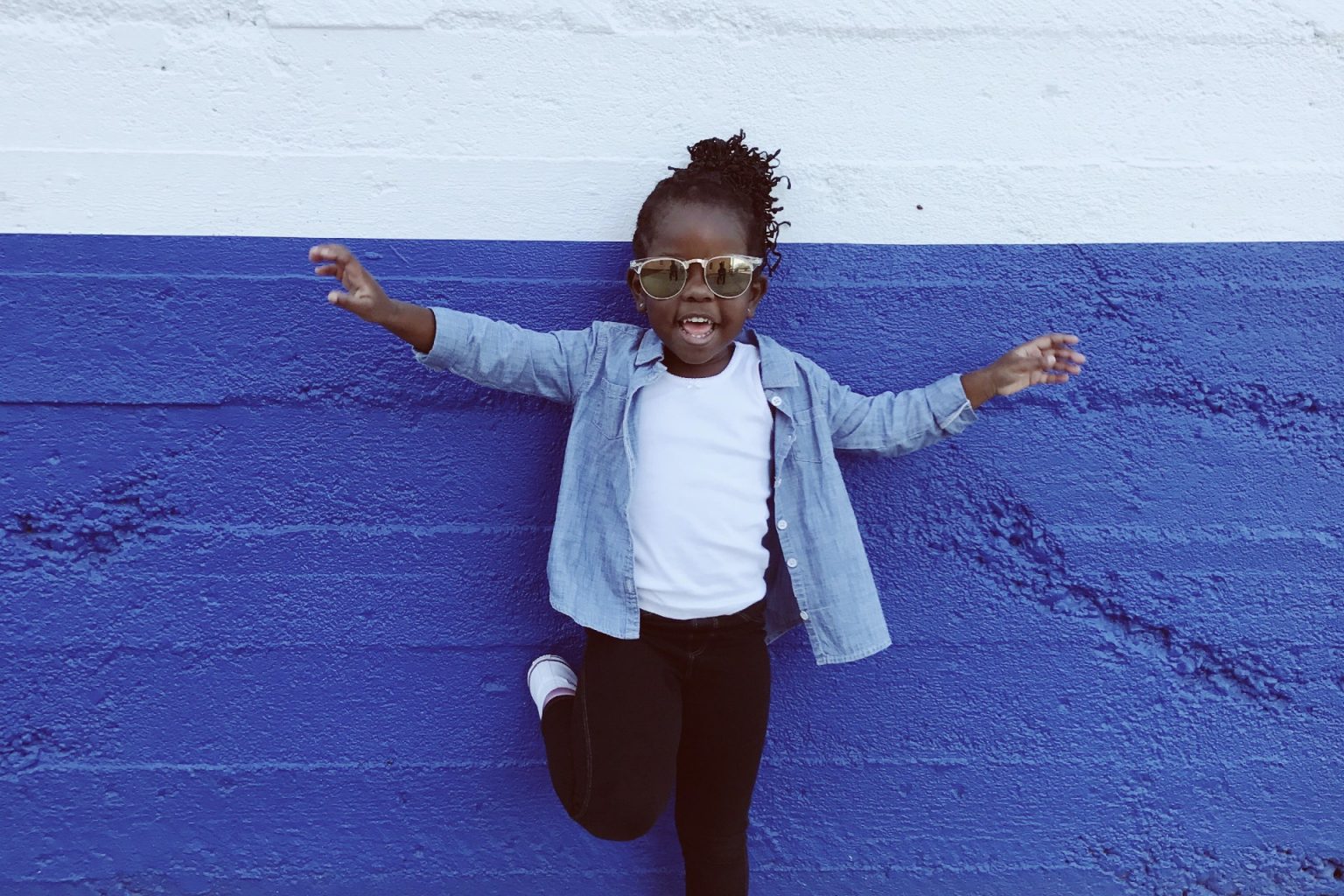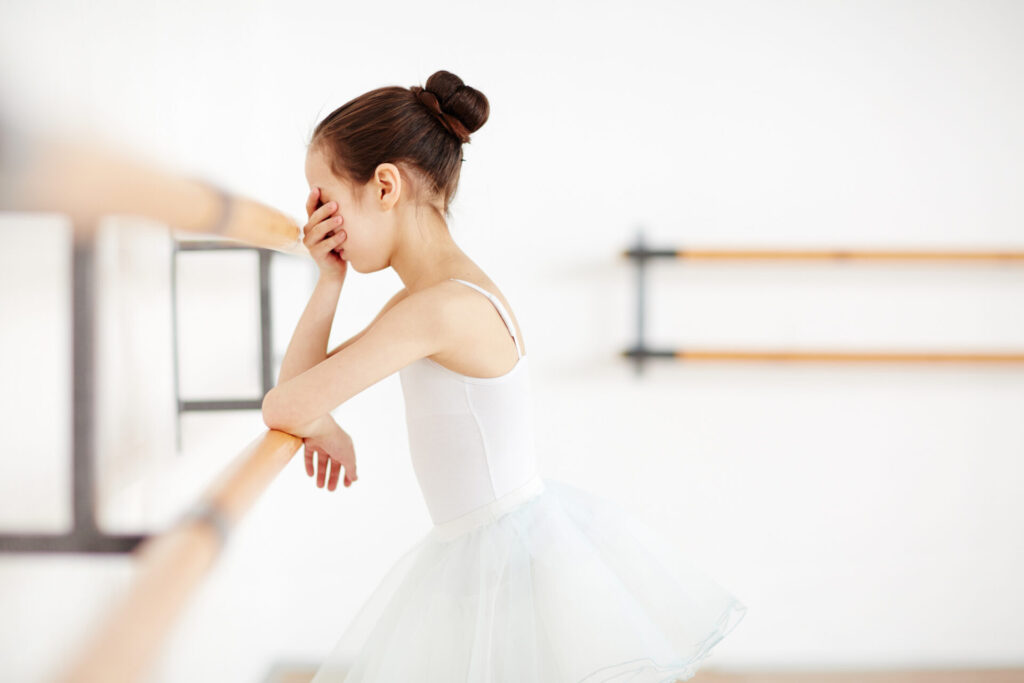Being body-positive isn't easy at any age. We know one of our most important jobs as parents is to nurture and model healthy self-esteem—and it takes lots of care and plenty of time helping kids adopt the habit of thinking positively about their bodies. (Heck, some of us parents could use a crash course in confidence.) It’s obviously no easy feat, and you’ll likely find yourself up against tough questions that have even tougher answers.
If you think your kids are more self-conscious than you were growing up, we’d wholeheartedly agree—they have social media to contend with and airbrushed ads and magazine covers to try to identify with. So where does that leave a kid who doesn’t like the shape of her nose, the baby fat around his middle, the birthmark on her hand, what he sees when he looks in a mirror? How can we get our children (tip: teaching body positivity should start when they’re tots) to love themselves and their bodies no matter their perceived imperfections? “Self-acceptance is a process that begins with an early foundation of unconditional love and support from the ones closest to us,” says Michelle Kambolis, a Vancouver-based family therapist and author of Generation Stressed: Play-Based Tools to Help Your Child Overcome Anxiety. With the right approaches, we can boost our children’s self-esteem and help them realize that every body is worthy of love.
“My son gets teased because of his freckles.”
Oshawa, Ont., mom Jessica Wood draws fake freckles on her face every day to make her son, Oliver, 7, feel better about his real ones. He’s been picked on since the age of five—kids tell him his face looks “dirty,” among other nasty comments. “One morning he asked me if I could put makeup on him so that kids couldn’t see his freckles.” Instead, Wood bought some $25 makeup online so she could match his complexion. She also talks about the family tree with Oliver, letting him know that he’s carrying on part of their genes. The two of them spend time online looking at photos of other kids and adults with freckles, and they have a daily routine of standing in front of the mirror together and going over all the things that make them special. Still, Wood worries for Oliver and his insecurities as he enters grade two. Kids this age are notorious for picking on peers who are “different.”
Expert opinion: Parenting expert Kathy Lynn, who’s based in New Westminster, BC, says Wood is on the right track when she brings up the family’s genes. “We can talk to our kids about how they look like other beloved family members. For example, ‘Aren’t you lucky you look like Uncle Jim?’” she says. “It lets them know they belong.” Lynn also points out that we can work with our kids to see their differences as features that make them who they are. “We have to help kids say, yup, my freckles are what make me unique.” Depending on their comfort level, kids can even approach classmates the same way: “I think your curly hair makes you special,” for example. “It’s about being positive,” says Lynn.
“My daughter thinks her body is ‘disgusting'.”
Mom to 11-year-old Anna*, Nicole Perry* is struggling with how her daughter perceives herself. “Anna has told me and her doctor that she thinks she looks ‘disgusting,’” she says. “I asked her what evidence she had to support those thoughts and she said there were none.” Having been bullied before for her height (she’s taller than many of her classmates) and partially-shaved haircut, “she used to come home crying,” says Perry. “For the last few years she’s been internalizing those feelings, which has affected her self-esteem.”
Perry keeps Anna talking about how she feels, hoping to figure out the root of the problem. “I don’t talk about how her body looks, but instead about how she feels,” she says. She also tries to model this when it comes to her own body, but Perry points out that even as an adult, she struggles. “The onslaught of messages that tell women we have to look perfect and be thin can be overwhelming, even for me,” she says. “How do I promote a healthy body image to Anna when I can’t control the sometimes-damaging messages she’s getting elsewhere?”
Expert opinion: Lynn understands how hard these conversations can be. While most parents’ immediate instinct is to correct our kids (“You are NOT disgusting!”), Lynn says it’s more important to investigate the issue first. “I would ask where that thought is coming from,” she says (which is something Perry has rightly done with Anna). We have to play detective—where we assume the thought came from may be completely different than where and how it actually originated, and you can’t properly react until you know, offers Lynn. In some cases, it may just be that a pair of pants aren’t fitting the same way they used to—it’s not necessarily as huge an issue as we may think.
When it comes to combatting the pressure put on kids to look a certain way, don’t underestimate the power of setting a good example. Michelle Pitman, a personal trainer and owner of Define Me Wellness in Whitby, Ont., has a 10-year-old daughter and often discusses their bodies’ amazing functions rather than the way it looks. “What we should be saying is more things like, ‘this is what I love about my body.’ And it’s not about aesthetics; it’s about the fact that my body allows me to do things I love, like walking to the park with my kids.”
*NAME HAS BEEN CHANGED.
Originally published in the Fall 2018 issue.










